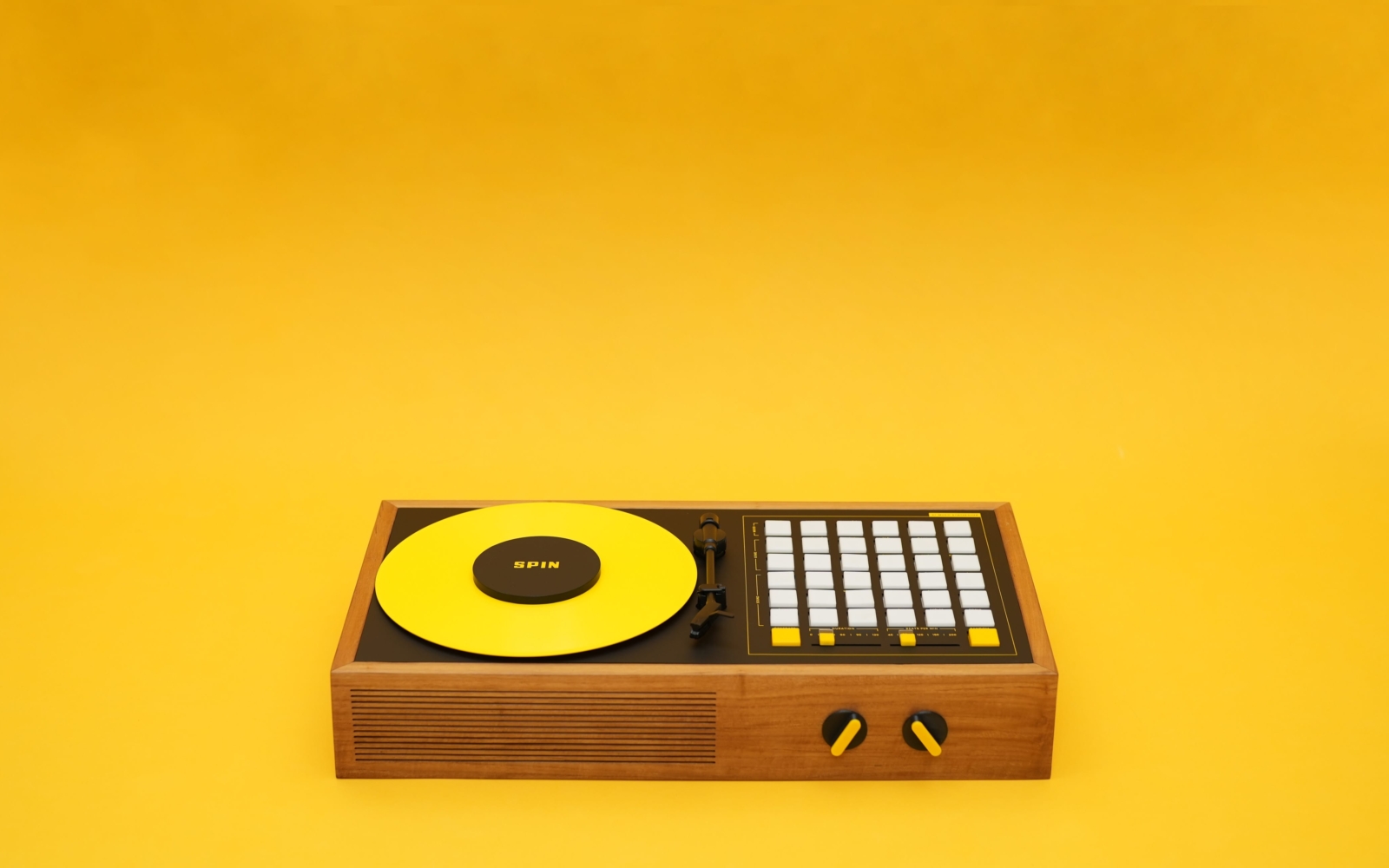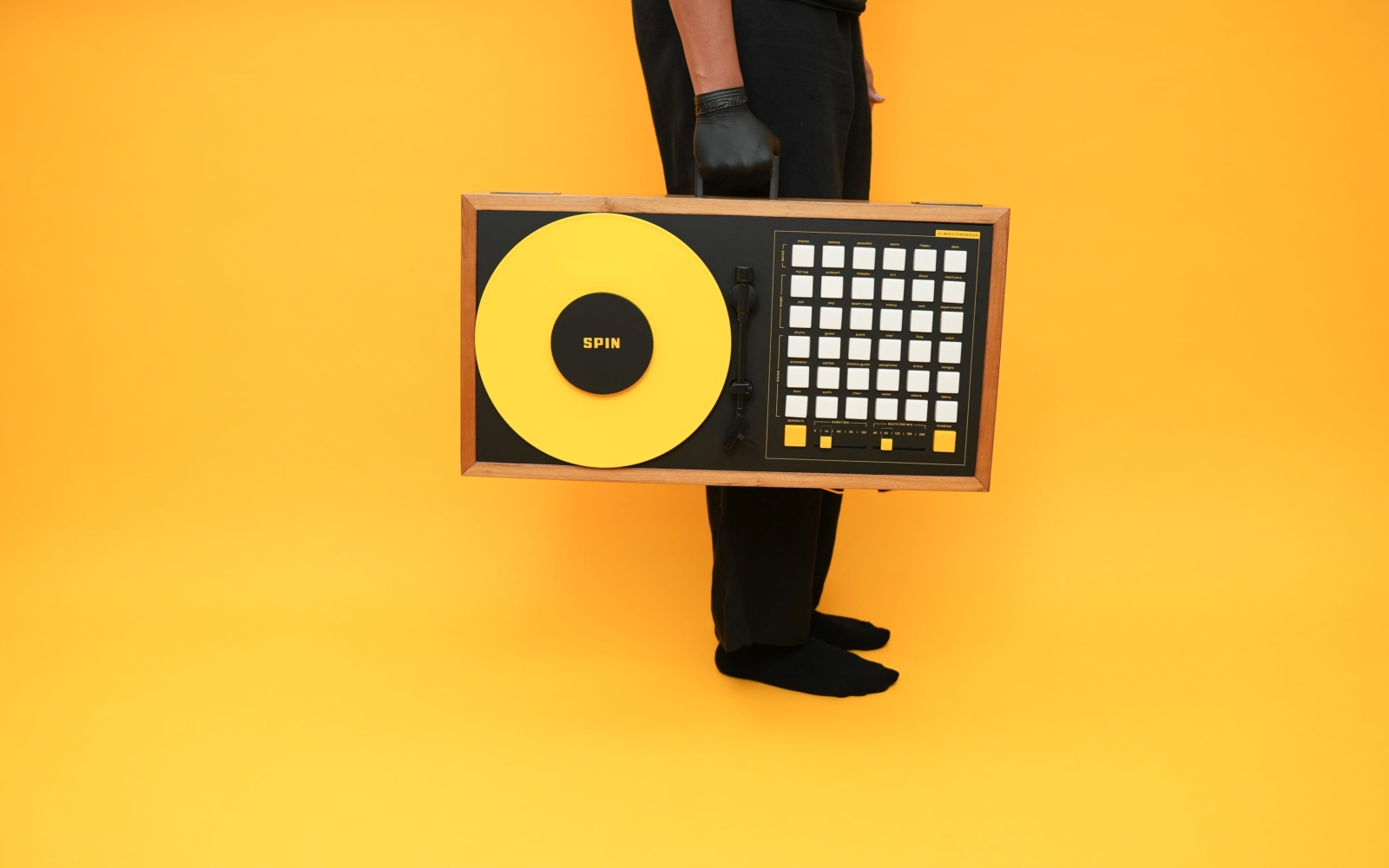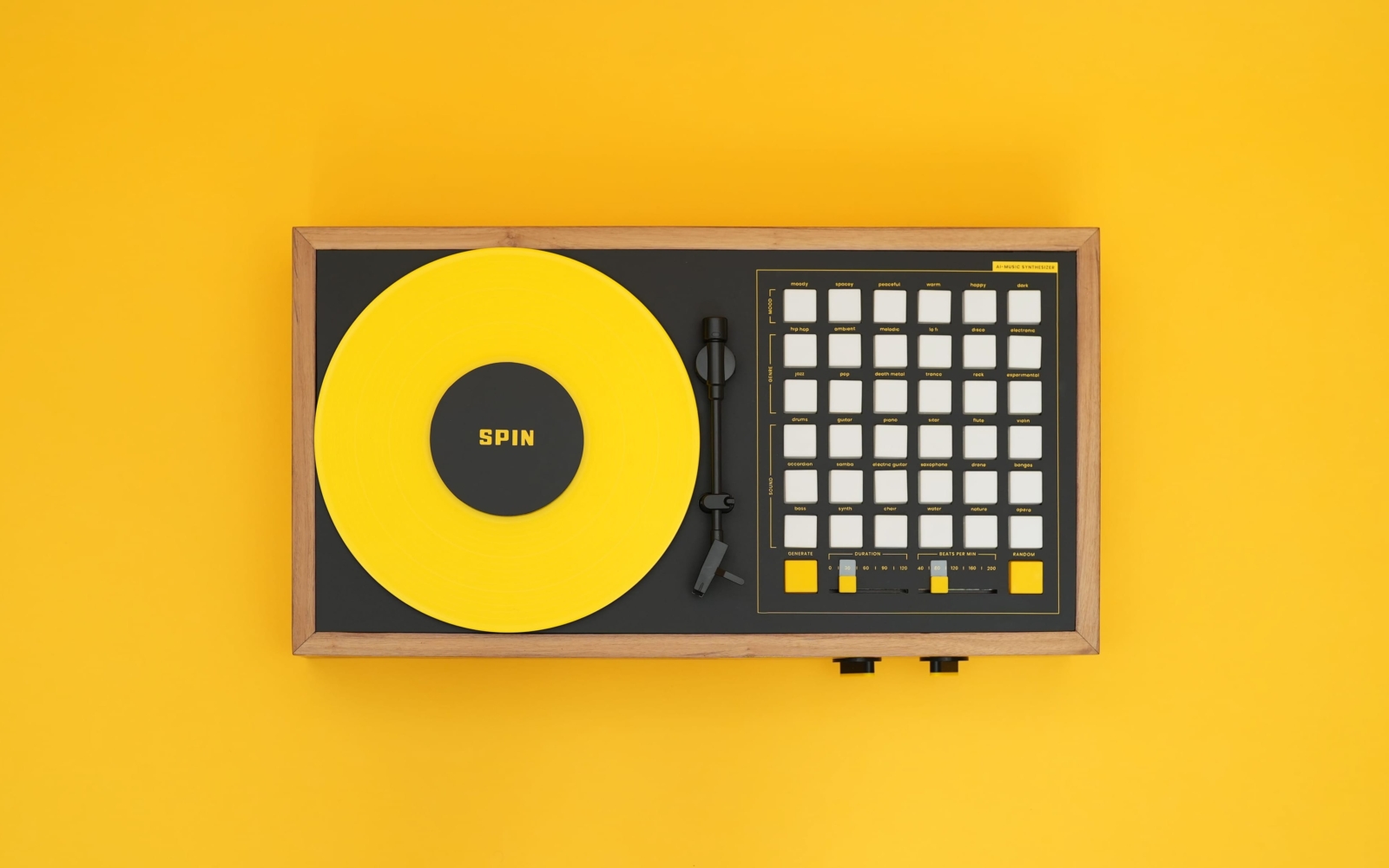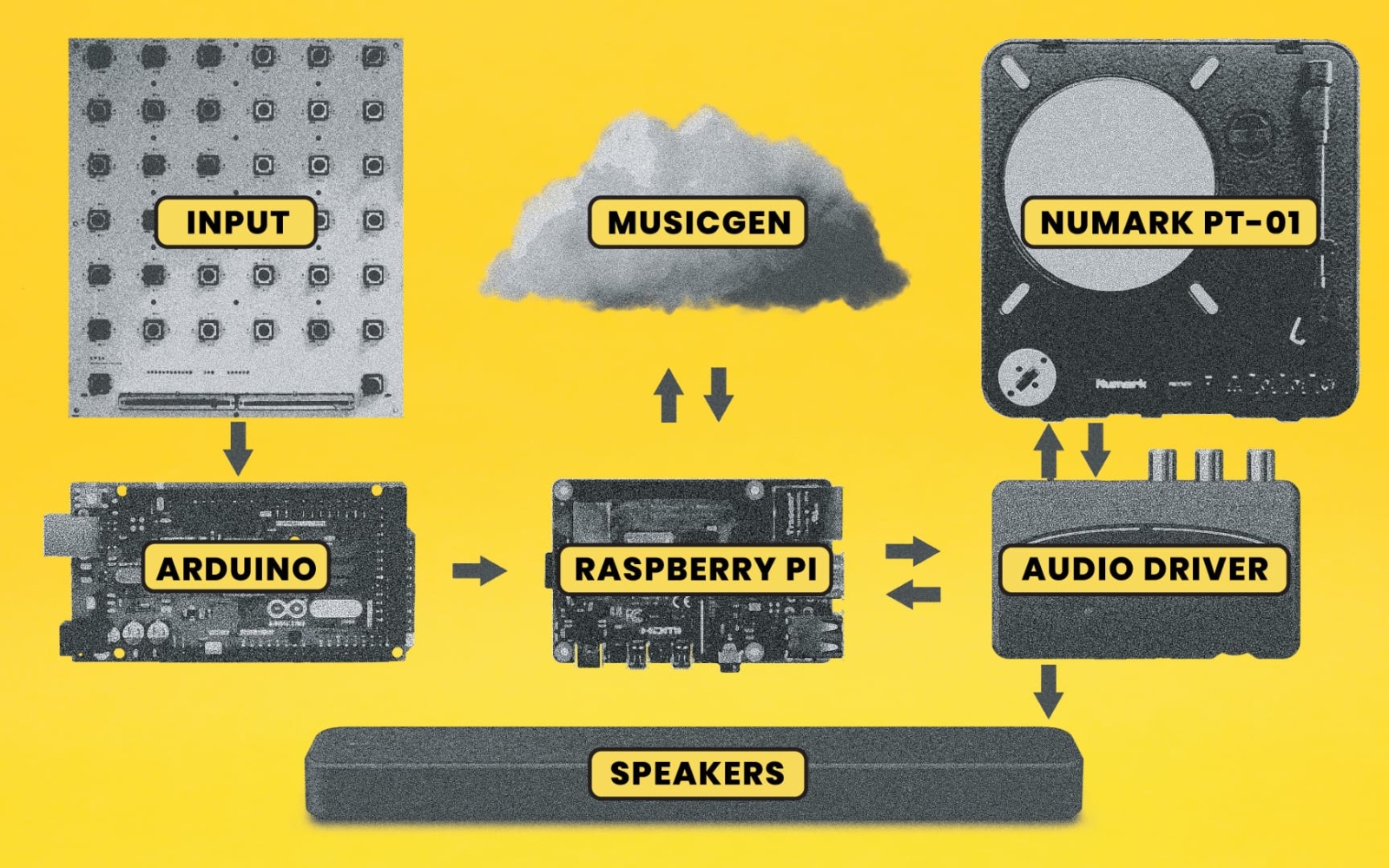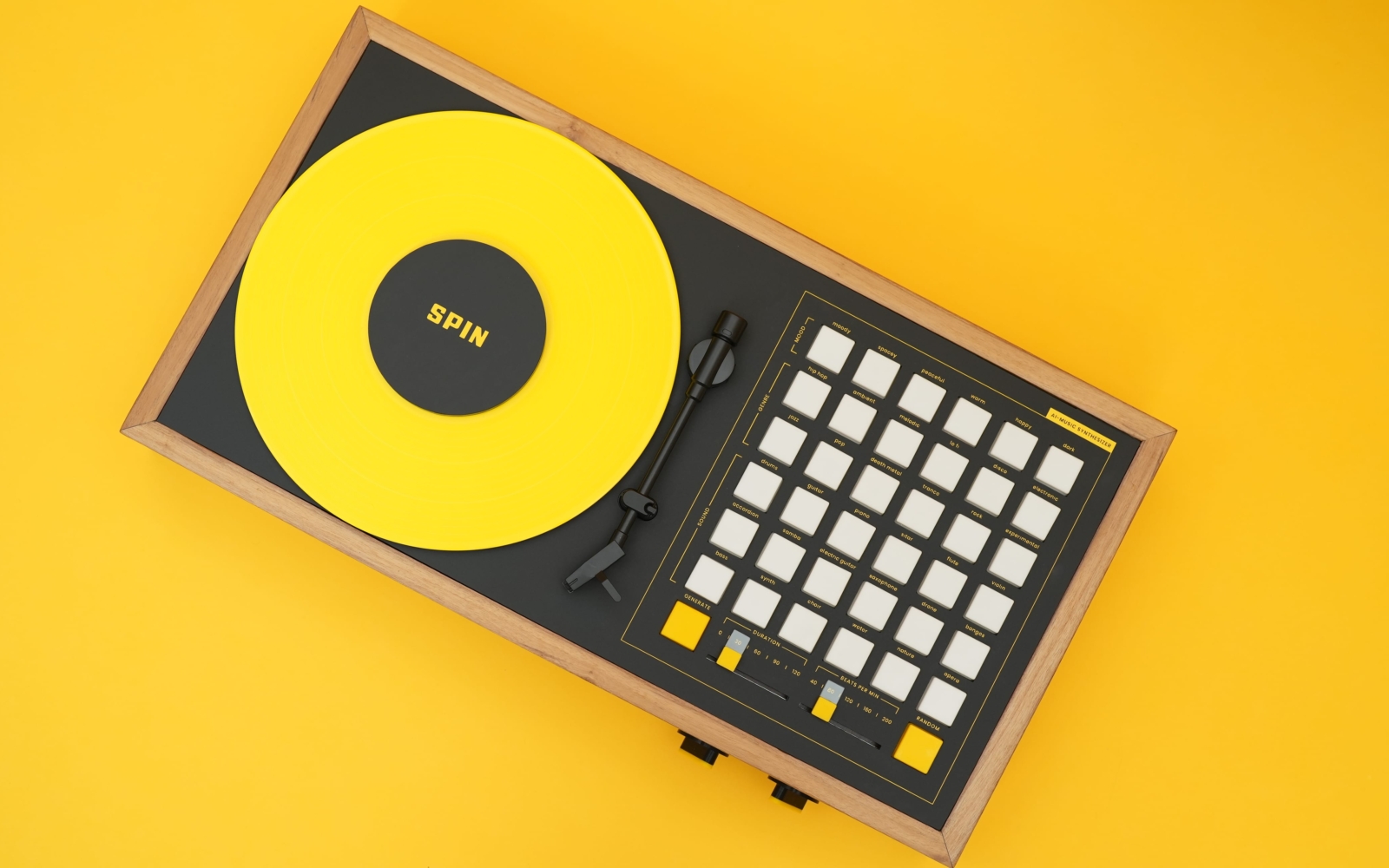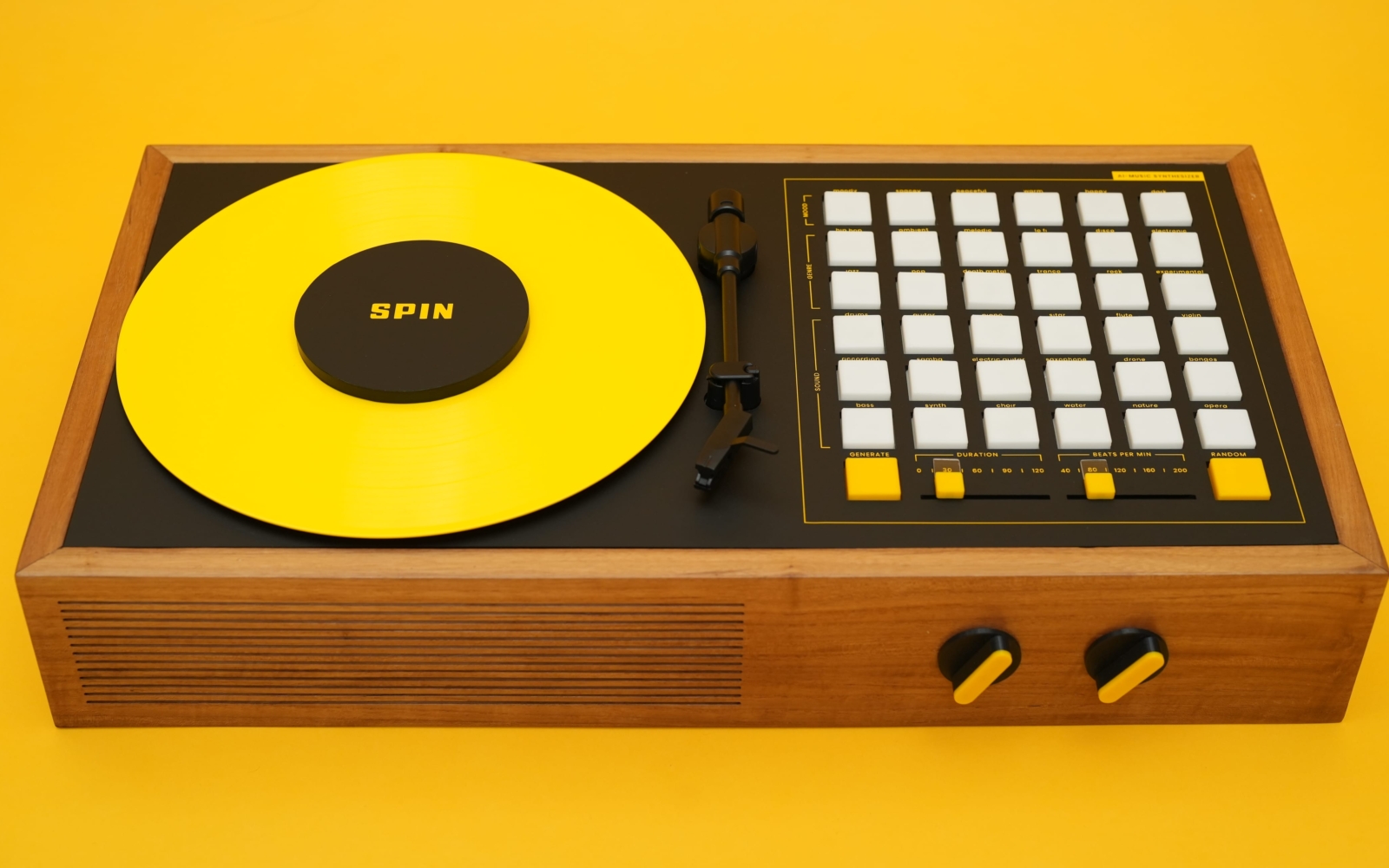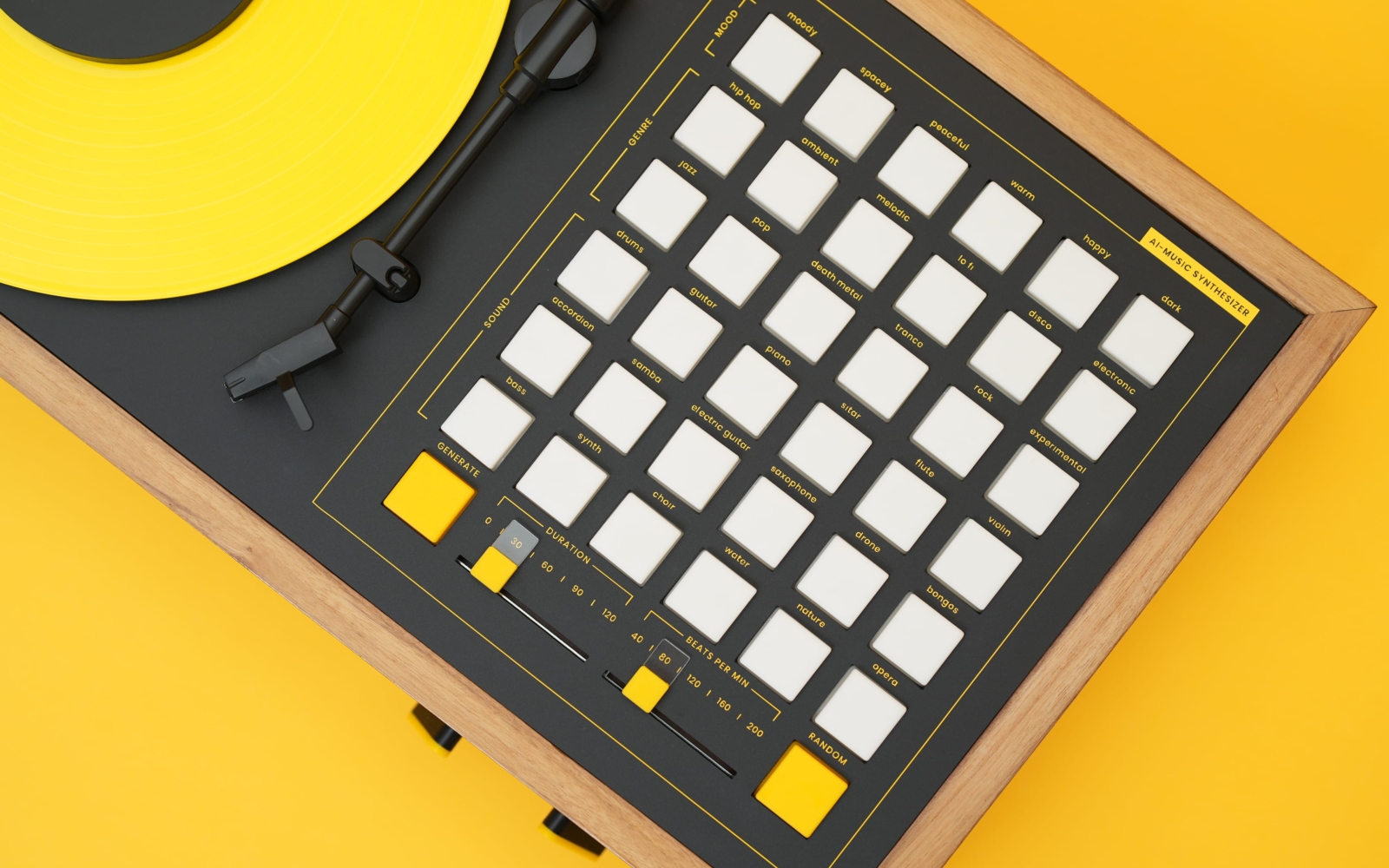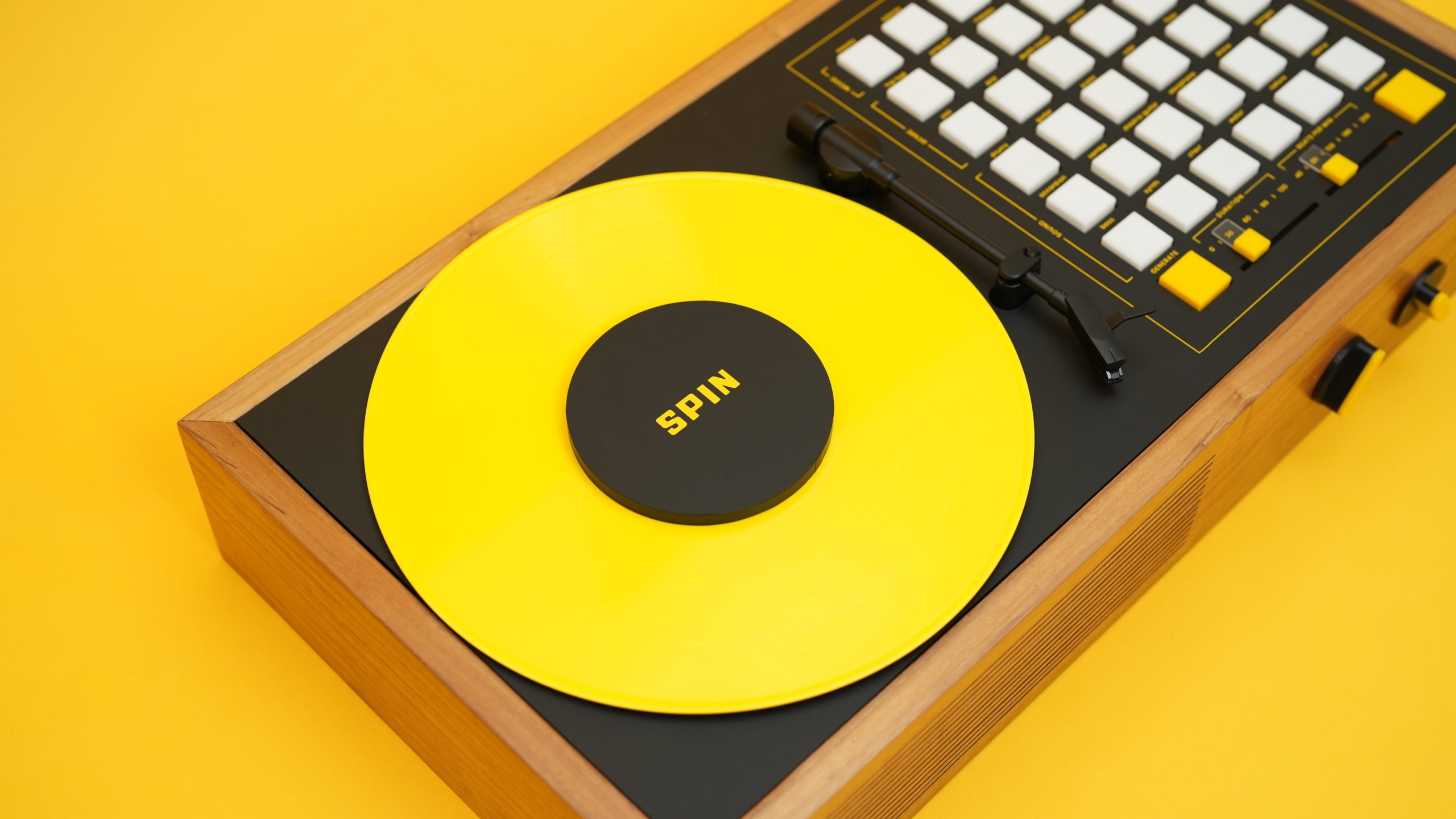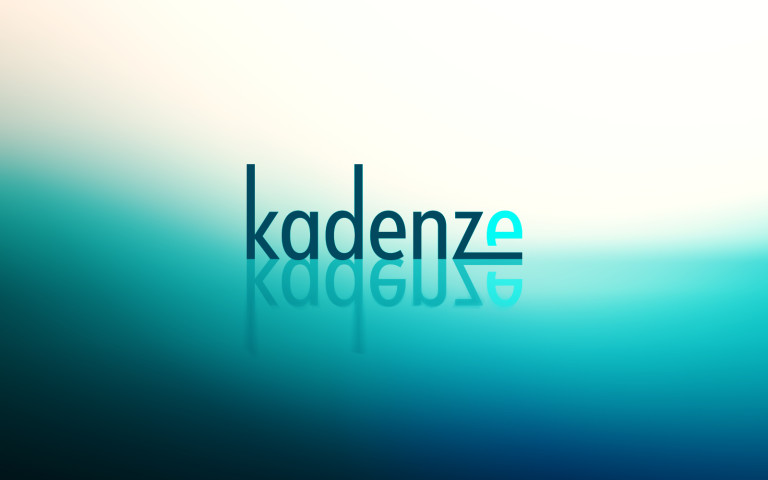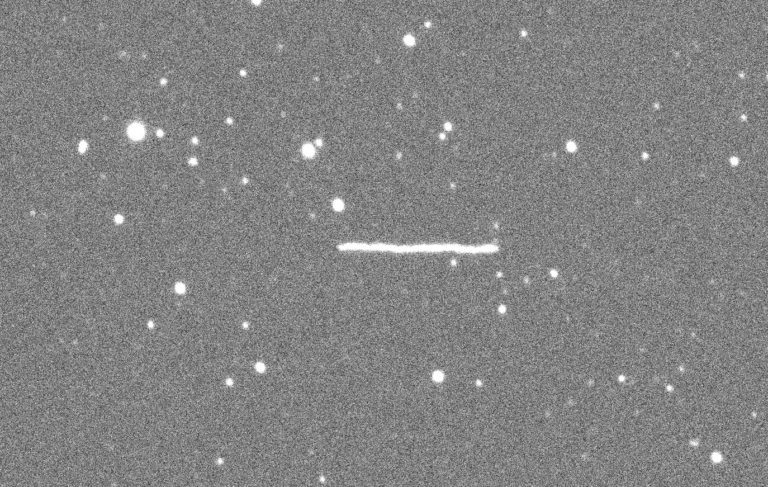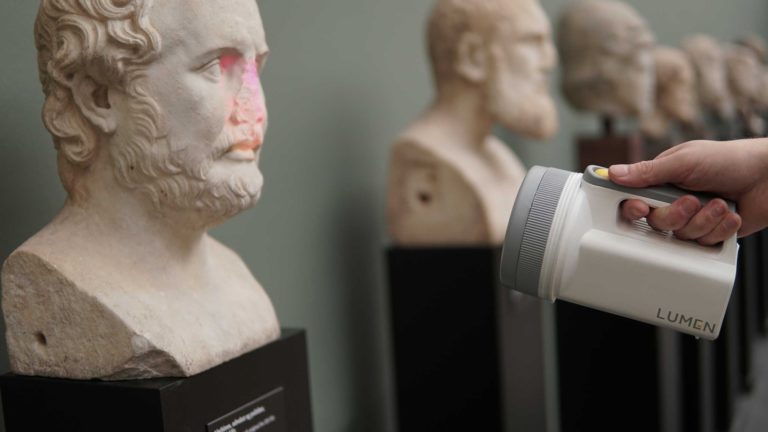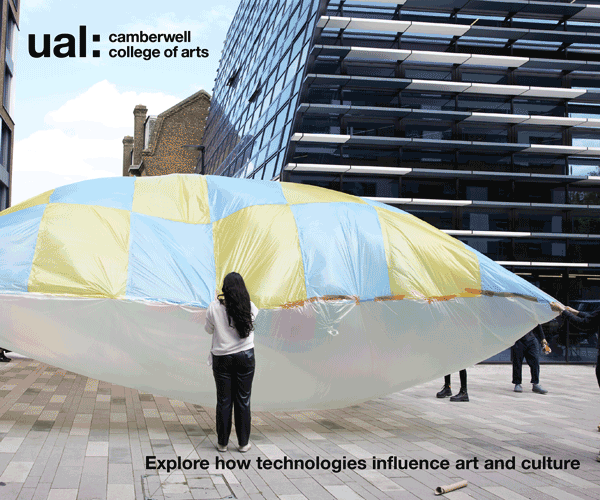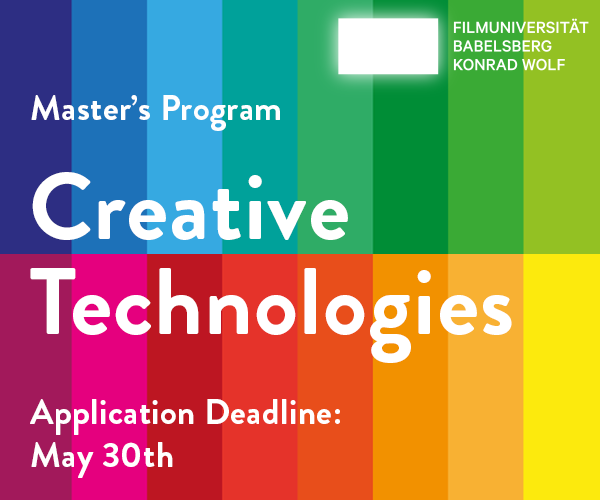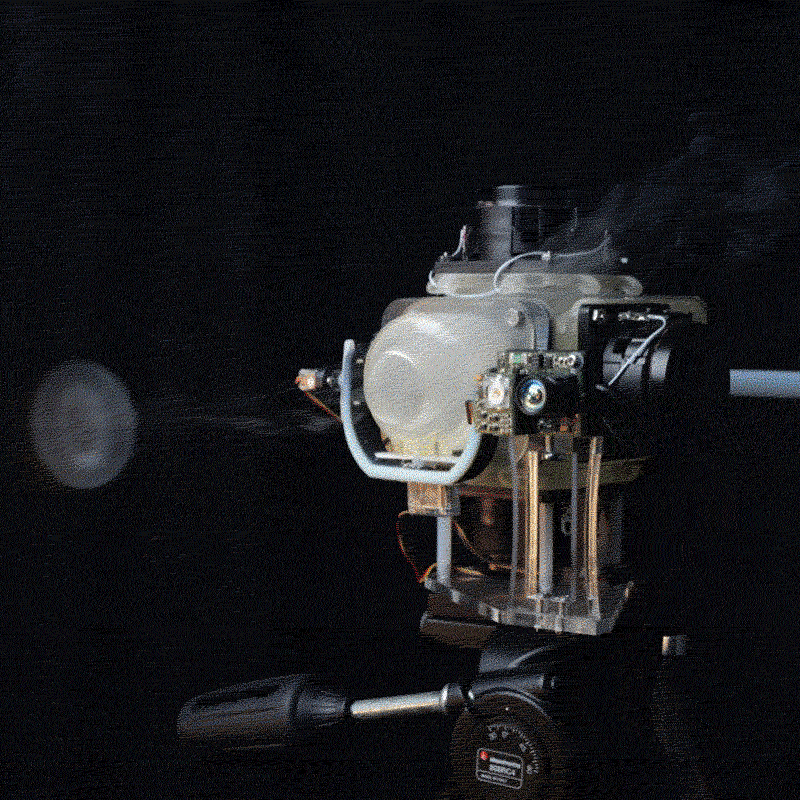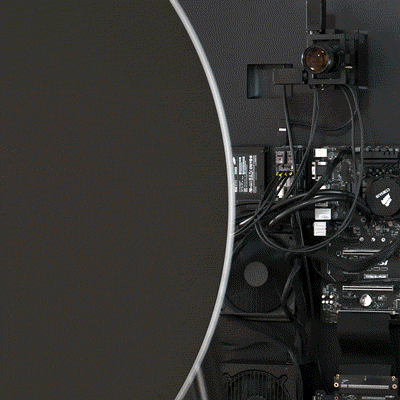SPIN is an AI music synthesizer that allows you to co-create compositions with a language model, MusicGen. It is a playful invitation to explore the nuances of algorithmic music, encouraging you to slow down and zoom in on its artifacts. It celebrates the marriage between human and machine creativity through music.
SPIN breaks down the process of co-composing music with an AI using a tangible interface. Enter the desired mood, genre, sounds and bpm to listen to the music come alive on an LP record. A DVS (Digital Vinyl System) allows you to slow down, zoom in, scratch and listen between the notes. Use it to create new compositions, as a simple sound synthesizer, as a playful scratch tool, or to play relaxing music in the background.
SPIN is an artifact from a future where music will be hyper-tailored to people’s tastes and preferences. It is an explorer of musical curiosities that can generate music unlike anything heard before, blending unheard-of combinations of sounds, rhythms and harmonies. This opens up exciting possibilities for pushing the boundaries of music and creating entirely new micro-genres. Who’s ready for some happy, death-metal, disco?
Under the hood, SPIN takes the input prompts in the form of button presses through an Arduino Mega. This is sent via serial to a Raspberry Pi, which prompts the MusicGen API. An mp3 file is received as the output, which is loaded onto a Digital Vinyl System (DVS). A transmuted Numark PT-01 and a timecoded control vinyl record serve as the turntable. The Xwax DVS package for Raspberry Pi reads the vinyl timecode through a Behringer audio driver, and the output is played via stereo speakers.
SPIN points to a future where music can be hyper-tailored to people’s tastes. It shows a glimpse of how AI can generate custom micro-genres that didn’t exist before. However, does this come with an ethical cost? As part of my role as an adjunct faculty for AI at CIID, I have also been surveying AI’s unintended consequences, especially around ownership. SPIN knocks on the door of ethical content creation. As MusicGen is trained on datasets of human-generated music, who really owns the copyright to its output? Ethical questions surrounding ownership, creativity, and potential biases in the algorithms are primary topics for discussion.
Project Page | Instagram | Twitter | Facebook | LinkedIn
